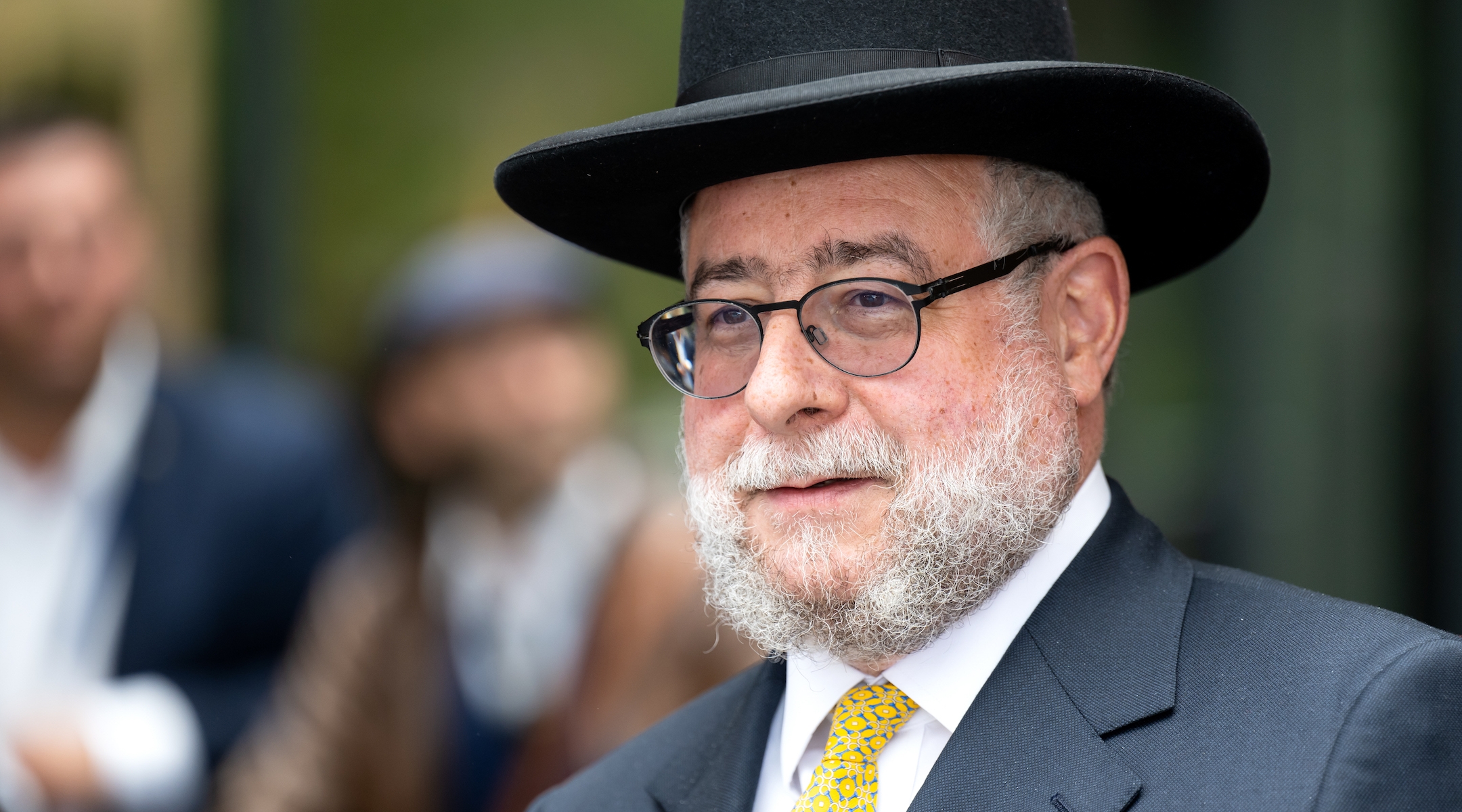Russia labels Moscow’s former chief rabbi a ‘foreign agent’
Rabbi Pinchas Goldschmidt, who had been Moscow’s chief rabbi since 1993, fled Russia just weeks into the war in March 2022

Pinchas Goldschmidt in Munich, May 30, 2022. (Sven Hoppe/picture alliance via Getty Images)
(JTA) — Russia has labeled Pinchas Goldschmidt, the former chief rabbi of Moscow, a “foreign agent” a year after he left the country and refused to pledge his support for the war in Ukraine.
The designation cannot be contested in court and bars those assigned it from participating in many aspects of public life in Russia. The Russian government expanded the definition last year amid a crackdown on dissent following Russia’s invasion of Ukraine, and it has threatened to apply the label to the Jewish Agency for Israel, which helps Russian Jews emigrate.
In Goldschmidt’s case, the label is likely symbolic, as he has acknowledged that he will not return to Russia after openly criticizing the war and, from abroad, warning Russian Jews to flee.
On Saturday, in response to the foreign agent designation, he reiterated that call, saying as he has before that Russia is on the verge of an antisemitic campaign.
“Russia has changed its face,” he said in a statement that reiterated comments he first made in December. “I call on the Jewish community to leave the country, before it is too late.”
Many Russian Jews have left the country since the beginning of the war in February 2022, with tens of thousands emigrating to Israel. Goldschmidt, who had been Moscow’s chief rabbi since 1993, was among them, leaving Russia just weeks into the war in March 2022. He later acknowledged that he had done so after facing pressure to support the war.
“I resigned because to continue as chief rabbi of Moscow would be a problem for the community because of the repressive measures taken against dissidents,” he told the Guardian in December.
He added that throughout Russian history, “whenever the political system was in danger you saw the government trying to redirect the anger and discontent of the masses towards the Jewish community.”
“We’re seeing rising antisemitism while Russia is going back to a new kind of Soviet Union,” he said, “and step by step the Iron Curtain is coming down again. This is why I believe the best option for Russian Jews is to leave.”
Jews were not allowed to practice their religion and were restricted from leaving the country while living under the Soviet regime.
Now living in Israel, Goldschmidt continues to serve as the head of the Conference of European Rabbis, a title he has had since 2011. He is not affiliated with the Hasidic Chabad-Lubavitch movement, whose leading rabbis in Russia have had a much closer relationship with President Vladimir Putin.
But while Russian Chief Rabbi Berel Lazar and his top spokesperson Boruch Gorin have remained in the country, Chabad leaders have expressed concerns about the war. In September, a gathering of dozens of Russian Chabad rabbis released a statement reading: “We pray that no more blood be spilled, and call upon people of good conscience everywhere to help aid those in need, including refugees, and end the suffering.”
A Russian official soon after described the Chabad movement as a “neo-pagan cult” striving for “global domination” in an op-ed that he later apologized for.
This article originally appeared on JTA.org.
A message from our Publisher & CEO Rachel Fishman Feddersen

I hope you appreciated this article. Before you go, I’d like to ask you to please support the Forward’s award-winning, nonprofit journalism so that we can be prepared for whatever news 2025 brings.
At a time when other newsrooms are closing or cutting back, the Forward has removed its paywall and invested additional resources to report on the ground from Israel and around the U.S. on the impact of the war, rising antisemitism and polarized discourse.
Readers like you make it all possible. Support our work by becoming a Forward Member and connect with our journalism and your community.
— Rachel Fishman Feddersen, Publisher and CEO


























